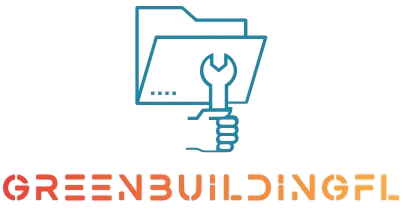How to Develop a Project Management Methodology
Developing a project management methodology is crucial for ensuring consistent and effective project execution. Here’s a step-by-step guide to help you develop your own project management methodology:
- Define Your Project Management Goals: Begin by clarifying your organization’s overall project management goals. Identify what you want to achieve with your methodology, such as improved efficiency, increased collaboration, or enhanced quality control.
- Assess Existing Practices: Evaluate your current project management practices and identify what has worked well and what needs improvement. This assessment will serve as a foundation for refining and developing your methodology.
- Research Established Methodologies: Familiarize yourself with established project management methodologies like Waterfall, Agile, Scrum, or PRINCE2. Understand their principles, processes, and best practices to identify elements you can incorporate into your methodology.
- Identify Key Process Areas: Determine the key process areas that your methodology needs to address. These may include project initiation, planning, execution, monitoring and control, risk management, communication, and project closure. Tailor these areas to fit your organization’s specific needs.
- Define Processes and Templates: Break down each key process area into specific processes, activities, and tasks. Document these in a clear and concise manner. Develop templates, guidelines, or checklists that standardize how these processes should be executed, ensuring consistency across projects.
- Establish Roles and Responsibilities: Define the roles and responsibilities of team members involved in your projects. Clarify who is responsible for what tasks, decision-making authority, and communication lines. This clarity will streamline project execution and avoid confusion.
- Incorporate Project Monitoring and Control: Determine how project progress will be monitored and controlled. Define key metrics, reporting formats, and project status updates. Establish mechanisms for addressing and escalating issues or risks that arise during project execution.
- Create a Knowledge Repository: Develop a centralized knowledge repository where project documentation, lessons learned, and best practices are stored. This repository will serve as a valuable resource for project teams to refer to and learn from past experiences.
- Test and Refine: Pilot your project management methodology with a small team or project to identify any potential gaps or issues. Collect feedback from project stakeholders and use it to refine and improve your methodology.
- Training and Communication: Once your methodology is well-defined, provide training to project team members and stakeholders. Clearly communicate expectations and guidelines for utilizing the methodology throughout the organization.
- Continuous Improvement: Monitor the effectiveness of your methodology through feedback, project performance data, and lessons learned. Continuously seek opportunities to improve and update your methodology based on evolving industry standards and organizational needs.
Remember, developing a project management methodology is an iterative process. It should be adaptable to different project types, sizes, and complexities. Regularly review and update your methodology to ensure it continues to align with your organization’s evolving project management goals and needs.




"oppna binance-konto
I don’t think the title of your article matches the content lol. Just kidding, mainly because I had some doubts after reading the article. https://www.binance.com/register?ref=IXBIAFVY
binance-
Thanks for sharing. I read many of your blog posts, cool, your blog is very good.
gate.io
Reading your article helped me a lot and I agree with you. But I still have some doubts, can you clarify for me? I’ll keep an eye out for your answers.
^Inregistrare
Can you be more specific about the content of your article? After reading it, I still have some doubts. Hope you can help me. https://accounts.binance.com/si-LK/register-person?ref=LBF8F65G
binance Konta Izveidosana
Thank you for your sharing. I am worried that I lack creative ideas. It is your article that makes me full of hope. Thank you. But, I have a question, can you help me? https://www.binance.info/el/register?ref=DB40ITMB
Crear cuenta personal
I don’t think the title of your article matches the content lol. Just kidding, mainly because I had some doubts after reading the article. https://www.binance.com/register?ref=IXBIAFVY
binance-ны алдым-ау бонусы
Can you be more specific about the content of your article? After reading it, I still have some doubts. Hope you can help me. https://www.binance.com/si-LK/register?ref=LBF8F65G
mitolyn
**mitolyn**
Mitolyn is a carefully developed, plant-based formula created to help support metabolic efficiency and encourage healthy, lasting weight management.
herpafend
**herpafend**
Herpafend is a natural wellness formula developed for individuals experiencing symptoms related to the herpes simplex virus. It is designed to help reduce the intensity and frequency of flare-ups while supporting the bodys immune defenses.
boostaro reviews
**boostaro reviews**
Boostaro is a purpose-built wellness formula created for men who want to strengthen vitality, confidence, and everyday performance.
g2g slot 888
Slot nổ hũ tại g2g slot 888 nổi tiếng “mát tay” nhờ cơ chế jackpot tích lũy liên tục từ cộng đồng người chơi. Nhiều thành viên đã đổi đời chỉ sau một lần quay trúng Jackpot trị giá hàng trăm triệu đồng. TONY02-03H
Register
I don’t think the title of your article matches the content lol. Just kidding, mainly because I had some doubts after reading the article. https://accounts.binance.info/register-person?ref=IHJUI7TF
binance odkazov'y bonus
Thank you for your sharing. I am worried that I lack creative ideas. It is your article that makes me full of hope. Thank you. But, I have a question, can you help me? https://accounts.binance.com/ru/register?ref=O9XES6KU
binance account creation
Your point of view caught my eye and was very interesting. Thanks. I have a question for you. https://www.binance.info/register?ref=IXBIAFVY
binance signup bonus
Can you be more specific about the content of your article? After reading it, I still have some doubts. Hope you can help me.
най-добър binance Препоръчителен код
I don’t think the title of your article matches the content lol. Just kidding, mainly because I had some doubts after reading the article. https://accounts.binance.info/en-NG/register?ref=YY80CKRN
binance Registrācija
Your article helped me a lot, is there any more related content? Thanks!